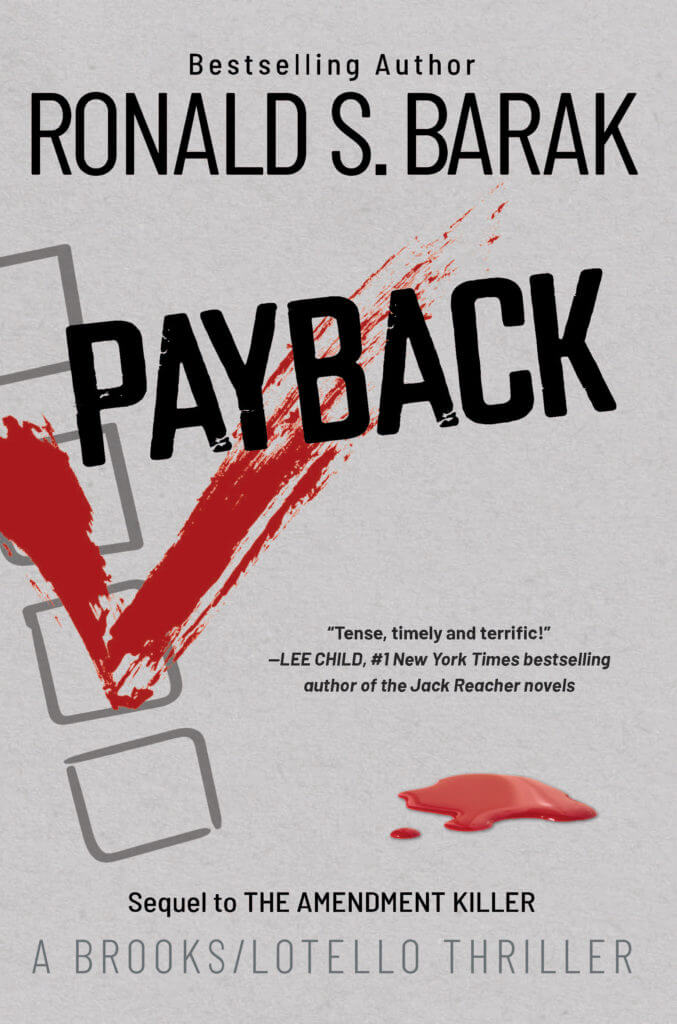 Wouldn’t you think that what’s “right” or “sound” would have something to do with it—how our governmental branches do business? In our legislative and executive branches, this is almost never the case. Even more alarming, with increasing frequency, this is ceasing to be the case with our judicial branch of government as well. Instead, timing, luck and PR have a lot more to do with what happens.
Wouldn’t you think that what’s “right” or “sound” would have something to do with it—how our governmental branches do business? In our legislative and executive branches, this is almost never the case. Even more alarming, with increasing frequency, this is ceasing to be the case with our judicial branch of government as well. Instead, timing, luck and PR have a lot more to do with what happens.
Consider the fundamental right to have your “day” in court. (Seldom does anything in a court happen in one day!) Doesn’t everyone have the right to their day in court? Not in all cases. Not for a long time.
Can you say . . . arbitration? Can you spell it? Well, of course you can, if you’re still reading.
For the past couple of decades, more and more businesses have been inserting (burying might be more accurate) mandatory arbitration clauses into the fine print of their financial services and other consumer contracts. Why? Because it’s arguably faster and cheaper than litigation? More to the point, however, it’s because these large companies dictate the underlying procedures, including the eligibility, if not the selection, of the arbitrators. And, therefore, are able to tilt a level playing field for dispute resolution in their favor.
Clearly not fair, consumer advocacy groups have been screaming foul as long as these mandatory arbitration provisions have been in use. But their cries have always fallen on deaf ears, not only among our legislators, prone to lobby influence, but also among our judicial system, whose judges have long felt they were overworked and underpaid, both true.
Our legislators can’t admit they are on the dole of lobbyists for the large corporations, doing their bidding. So, they claim it’s necessary to relieve our crowded courts. And, so they argue, it’s “better” for consumers because it’s faster and cheaper than the judicial process. Even if what faster and cheaper means is losing in the outcome because of the loaded deck. Even to the consumers who say thanks, but no thanks. I guess our legislators know what’s best for consumers, those folks who have no lobbyists in their corner.
At least the courts, who seldom see a case they don’t prefer to “kick” to arbitration, are a little more honest. In rare instances, they accept either or both of two rationales for rejecting mandatory arbitration clauses in consumer contracts.
First, if a contract is so one sided and unfair as to be “unconscionable” (which is just a fancy way of saying one sided and unfair), courts reluctantly will reject a mandatory arbitration provision in a contract. This is especially true if the provision was forced on the consumer on a take or leave it basis and not a provision on which the consumer knowingly and willingly agreed. Consider, for example, those lengthy, tiny print, boiler plate mortgage agreements or insurance contracts. Could you say to your lender or insurer, “I think I would prefer to delete that arbitration provision” (or so much as a comma or semicolon!)? And would the lender or insurer respond “No problem, and how do you like your coffee, two lumps or one?” The lenders and insurers I know always say “Sorry, our lawyers won’t let us make any changes,” a softer (but not much) way of saying “Take it or leave it.” Unfortunately, courts almost never find a mandatory arbitration provision to be “unconscionable” or not genuinely “agreed to” by the consumer.
Second, a little more promising, but just a little, in the case of a consumer seeking to “rescind” (cancel) a contract on the grounds that he or she was defrauded into entering into the contract, courts often will not impose a mandatory arbitration provision in the allegedly fraudulent contract to decide whether the consumer was induced to enter into the contract. Still, even in this seemingly compelling circumstance, courts are reluctant not to kick the case to arbitration. In fact, reportedly, several courts have compelled customers of Wells Fargo who claim they are victims of bank accounts fraudulently opened by Wells Fargo to take those claims to arbitration loaded in Wells Fargo’s favor rather than to court.
Hard to believe, isn’t it? But, wait a minute, to the rescue, our executive and legislative champions of mandatory arbitration provisions are suddenly rethinking their decades old pro-arbitration attitude.
Last week, Senator Sherrod Brown (D-Ohio) said that he “soon” plans to push legislation that would allow Wells Fargo customers to sue the bank over unauthorized accounts opened by employees trying, for example, to meet aggressive sales quotas or to earn bonuses. Brown, reportedly an outspoken opponent of mandatory arbitration clauses, now says “Giving customers back their right to take Wells Fargo to court gives them the power to ensure they are made whole and helps prevent cases like this in the future.” And what about other consumers with equally meritorious challenges to mandatory arbitration provisions to which, like Wells Fargo customers, they never agreed, meaningfully, if at all? Well, could it be that these other consumers are not garnering as many headlines as Wells Fargo customers? Such that Brown’s not as worried about or sensitive to what is happening to these other consumers?
The escalating scandal also drew the attention of Hillary Clinton, who in a recent speech criticized Wells Fargo and other companies that use the fine print in customer contracts to force disputes into private arbitration instead of allowing consumers to go to court. She said that if elected, she would “rein in the abuse.” Clinton now says that she will push to eliminate mandatory arbitration clauses from financial products and other consumer and employment contracts, such as those for student loans. “We are not going to let corporations like Wells Fargo use these fine-print ‘gotchas’ to escape accountability,” Clinton said. “This has become a common practice across a lot of industries — from nursing homes that mistreat seniors to for-profit colleges that defraud students. Who reads all that fine print? I don’t. So you get … mistreated, and all of a sudden they say, you can’t sue us. So we’re going to rein in the abuse.” Hmm, where was Clinton when she was a U.S. senator? Did she not then notice this “abuse” of consumers? I don’t seem to recall any efforts on her part to address this abuse then.
And, what about Donald Trump, who has not yet spoken out on this matter? I guess he’s been too preoccupied with other more “weighty” issues. 🙂 He’s probably used these mandatory arbitration provisions in his contracts with the various trades suing him for non-payment of their contracts. I guess we’ll probably soon hear Trump saying that he is therefore best and singularly qualified to straighten out this mess, as in the case of our messed up tax laws, the benefits of which he uses at every opportunity!
Ironically, it seems that Wells Fargo may soon effect some broader reforms than just its own misconduct. That may take care of inappropriate mandatory arbitration provisions, but what about our governmental representatives who seem a lot more concerned about headlines than they are about genuinely serving the best interests of we the people?
That will likely require the 28th Amendment to the U.S. Constitution, the missing amendment.
Join the discussion either by logging in just below or by signing into your favorite 160social media outlet. If you’re having trouble, please follow these instructions to guide you! Thanks!







